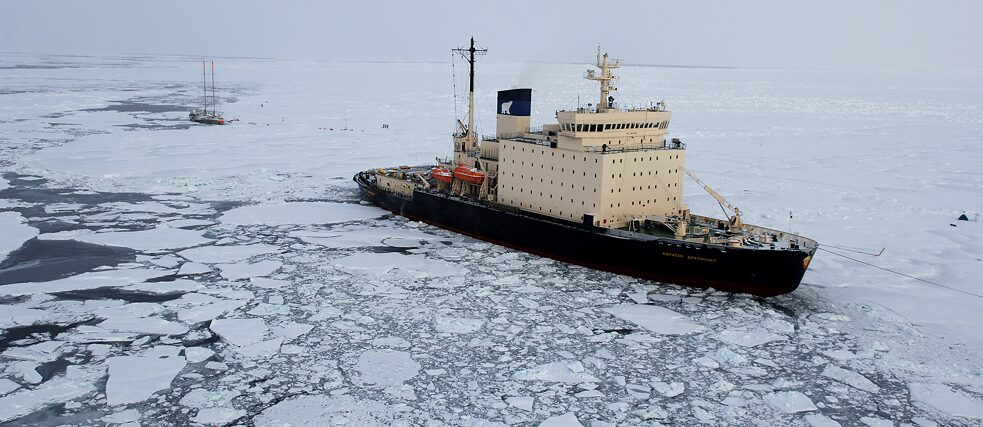Geopolitics
The Arctic: A Legislative Abyss?

While some are looking for ways to slow down the ongoing climate change, others are doing their best to benefit from the situation. The melting of sea ice opens unprecedented opportunities for Russian business projects in the Arctic. Author Rodion Vasilievich Sulyandziga has his doubts if they heed the rights of the North’s Indigenous peoples.
By Rodion Vasilievich Sulyandziga
In 2020, the Russian Government developed and approved a series of laws directly related to the rights of the Indigenous peoples in the North of Siberia and the Far East of the Russian Federation.
Why now? What does the concession of rights have to do with the economic development of the Russian arctic and what threats may it pose to its Indigenous population?
The material financial consequences of the pandemic overlapping the decade of stagnation in the economic development became a finishing touch on the bleak picture the year 2020 painted for Russia. With the social inequalities growing and economy declining, I have the impression that the Russian Government is attempting to rush into Arctic development programmes as a last chance to save the economic situation.
State Support for Extractive Businesses
While many countries like Germany or the United Kingdom consider the global climate change the gravest global crisis of historical importance, it seems like the Russian authorities see rising temperatures and melting ice as an unprecedented opportunity to promote large-scale business projects in the Arctic, hoping that they will drive the national economy forward. Some of the projects, particularly those aimed to establish new marine routes across the Arctic, are expected to reduce shipping time by 40 percent. I would like to stress that this would allow Russia to take complete control of the trade between Asia and Europe in this part of the world.At the same time, the policy paper called Strategy for developing the Arctic zone of the Russian Federation and ensuring national security through 2035 adopted by the Russian Parliament in October 2020 actually defines the Arctic’s status as a base for the development of economic businesses involved in the extraction of oil, gas and minerals. Supporting a resource-oriented economy, which is the motto of the strategy, will from my point of view inevitably lead to the formation of a normative system that prioritises extractive industries with their unrestrained and insatiable appetite for profits. Tellingly, this policy document doesn’t mention the programme’s environmental and social costs. Although the Indigenous population is mentioned in different parts of the paper, the document does not have a special chapter dedicated to their rights and development.
‘Blessed’ with Resources
Perhaps no other country benefits as much from climate change as Russia does, which is why in my opinion prioritising the choice of the country’s economic elite comes in no way as a surprise. By denying the Indigenous peoples the connection between human rights and environmental issues, the country’s government seems to believe that climate change and economic opportunities are synonymous.Based on previous experience, it is easy to predict that, in the attempts to stimulate economic growth, the officials will agree to turn a blind eye on laws and environmental regulations, related to the rights of the Indigenous peoples and begin exploiting the lands and natural resources of these communities. Once again, we are going to witness a fierce competition for immediate economic profits to the detriment of the people and the fragile nature in the North.
According to my experience, western and Russian observers usually regard the Arctic as a source of Russia’s power and grandeur. As a matter of fact, this is the country’s blind and closed zone. Encircled in the ever-contracting ring of pollution, the Arctic is threatened by an environmental catastrophe. In May 2020, Russia experienced one of the gravest environmental disasters in its history, when several thousand tonnes of oil leaked from the Nornikel plant to contaminate the soils and water of the Taymyr Peninsula in Siberia. By the scale of its impact, this catastrophe is perhaps second only to the leak in a pipeline in Komi in 1994, which according to Greenpeace resulted in eight times more spilt oil than in the 1989 accident that involved the Exxon Valdez oil tanker. At that time government officials responded by cementing the region’s future into the oil and gas industry. Doomed to ever remain a mere supplier of natural resources, rather than people being its most precious asset, today the Arctic needs better protection and in particular courageous politicians and intelligent managers speaking on its behalf.
Given that extracting “inexhaustible” natural resources is regarded by the economic elite as the only possible way to develop the Arctic, what future may the region face? What will the repeated mantra about the Arctic being “blessed” with resources do to the Indigenous peoples in the North of Siberia?
The year 2020 showed that more profound changes are needed. Today, the situation of the rights of Indigenous peoples in Russia resembles a drowning ship. The future fate of the Indigenous peoples of the Arctic and the North looks lamentable: Their identity has been devalued by economic interests, their riches stolen, their lands devastated, their rights are not protected, their freedom is under threat and their equality has only been imitated.